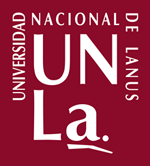Public employment policies in Buenos Aires Province
Abstract
From the nineties on, public employment policies were
implemented as components of processes of state reform
processes and modernization, aiming at both a reduction
of budgets in labor employment together with labor
flexibility and the promotion of professionalization
of public servants. While specialized bibliography agrees
in showing that downsizing and flexibility of employment
conditions have been prevalent strategies, most of it
focuses exclusively in changes conducted at the national
level, with less attention addressed at transformations going
on at sub-national levels. Thus, this article attempts
to describe some of the principal transformations in public
employment in Buenos Aires province since 1991,
through an analysis of the different public employment
policies implemented and their outcomes, in subsequent
government administrations: 1) that of Eduardo Duhalde
(1991-1999); 2) that of Carlos Ruckauf (1999-2001);
3) that of Felipe Solá (2002-2007); 4) those of Daniel
Scioli (2007-11, 2011-2015); and current María Eugnia
Vidal’s (2015-present). Our hypothesis asseses that
a “reductionist” approach has been invariably the leading
one in all government administrarions, whilst professionalization
initiatives have had limited incidence in public
agendas, thus howing limited results.






